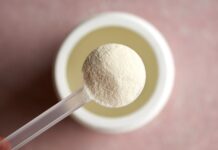Probiotics – live microorganisms marketed for gut health – have exploded in popularity, but the science often lags behind the hype. While some strains show promise, the FDA doesn’t regulate supplements for safety or effectiveness. Before taking probiotics, understand that benefits aren’t guaranteed, and individual results vary.
Why This Matters: The probiotic industry is booming, yet many products lack rigorous testing. Consumers often assume all strains are equal, which isn’t true. Choosing the right strain for a specific condition is crucial, and expectations should be realistic.
The Five Most Studied Strains
Here’s a breakdown of five probiotics with the strongest research backing, what they may do, and what the evidence actually says:
1. Lactobacillus Acidophilus : Antibiotic-Associated Diarrhea Relief
L. acidophilus is widely available in yogurt and supplements. It may help prevent or reduce diarrhea caused by antibiotics, a common side effect.
The Evidence: Studies show that L. acidophilus can shorten diarrhea duration, improve stool consistency, and enhance quality of life during antibiotic treatment. Yogurt containing this strain may be as effective as capsules.
Caveats: The benefits are primarily for antibiotic-induced diarrhea. Evidence for other digestive benefits (IBS, regularity) is weak.
2. Lacticaseibacillus Rhamnosus GR-1 : Vaginal and Urinary Tract Health
L. rhamnosus GR-1 is one of the most researched probiotics for women’s health. It may reduce the recurrence of bacterial vaginosis (BV) and urinary tract infections (UTIs).
The Evidence: Studies suggest it suppresses inflammation in the female urogenital tract.
Caveats: While promising, it’s not a cure-all. If you experience recurrent BV or UTIs, consult a healthcare professional.
3. Streptococcus Thermophilus : Lactose Intolerance Relief
For the 68% of the world who struggle with lactose digestion, S. thermophilus may alleviate symptoms like gas, bloating, and diarrhea.
The Evidence: It helps break down lactose through enzymatic activity.
Caveats: It doesn’t cure lactose intolerance. Benefits require consistent supplementation. Lactase supplements (Lactaid) may be a more reliable option.
4. Limosilactobacillus Reuteri : Infant Colic Reduction
Parents of fussy babies may find relief with L. reuteri.
The Evidence: Multiple studies show reduced crying and fussing in breastfed infants.
Caveats: Results are less consistent in formula-fed babies. Always discuss with your pediatrician before giving probiotics to infants.
5. Bifidobacterium Longum : Mood and IBS Support
B. longum shows some promise for improving mood and alleviating IBS symptoms.
The Evidence: Some studies suggest antidepressive effects and reduced IBS severity.
Caveats: The evidence is mixed. Not everyone experiences benefits. More research is needed.
The Bottom Line:
Probiotics aren’t a miracle cure. The effectiveness depends on the strain, dosage, and individual response. If considering supplements, choose strains backed by research and discuss with your healthcare provider. Don’t rely on marketing hype; prioritize evidence-based decisions.
Editorial Sources:
This article relies on peer-reviewed studies, expert opinions, and information from reputable health institutions. All sources are verified for accuracy and relevance.
Meet the Experts:
Yuying Luo, MD : Assistant Professor of Medicine, Mount Sinai West and Morningside.
Sarah Garone : Licensed Nutritionist, Freelance Health Writer

































